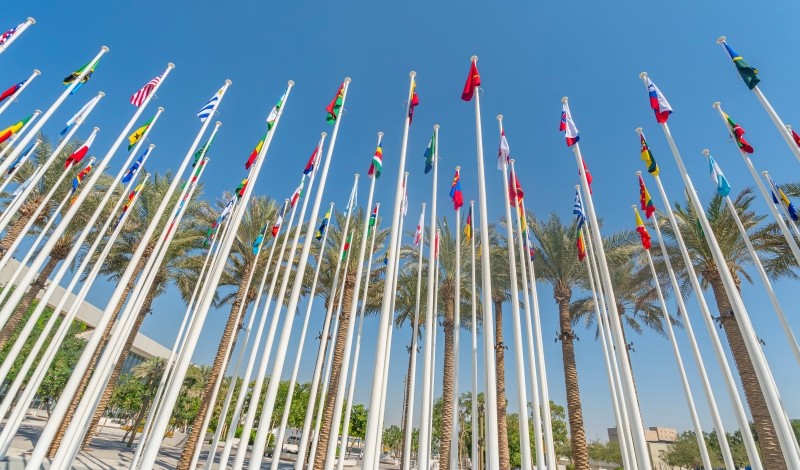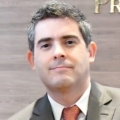
International organizations can conduct research on regulatory efficiency and best practices to support DOGE’s mission.
Days after the election of President Donald J. Trump and the announcement that Elon Musk and Vivek Ramaswamy would co-lead the Department of Government Efficiency (DOGE), the two advisors to the then-incoming President published a widely read op-ed in the Wall Street Journal titled, “The DOGE Plan to Reform Government.”
In their piece, Musk and Ramaswamy addressed several complex issues dealing with constitutional and administrative law, and budgetary and regulatory issues. One such issue they addressed is my focus here: the anticipated cutting of “$1.5 billion for grants to international organizations.”
Even after Ramaswamy left DOGE during the first week of the new Administration, some commentators still believed that the new temporary entity can realize both budgetary savings and deregulation. And indeed deregulation would align with the President’s rhetoric.
Both member dues and voluntary contributions are important for the strategic budgeting and mid-term goals of international organizations, including those that generate regulatory policy advice. In this sense, regulatory policy advice can be impacted by varied forms of international organization financing.
In the regulatory domain, at least a few international organizations have developed a body of work that can be understood, to a great extent, as in line with DOGE’s “regulatory rescissions, administrative reductions and cost savings.”
Consider the work of the Organization for Economic Cooperation and Development (OECD), for example. OECD practices a principle-based approach, focused on reducing administrative burdens while promoting competition. OECD also supports studies on regulatory offsets in various countries, including the United States. In addition, OECD works hard to facilitate international regulatory cooperation. The importance of this issue is reflected for instance, in a recommendation of the Administrative Conference of the United States.
OECD has developed an index of best practices for regulation and competition, known as the Product Market Regulation (PMR) indicators. OECD developed these best practices based on the realization that “pro-competition regulations are vital to foster innovation, business dynamism, productivity, investment, and employment.” The PMR indicators show significant room for regulatory improvement in the United States, where regulations do not perform as well as in other countries such as the United Kingdom, the Netherlands, Ireland, Germany, Italy, Australia, Canada, Korea, and Chile—subject to the caveat that the second-to-last United States PMR indicator was not as complete as it could have been because it only relied on data from Texas and New York.
In December 2024, Scott Jacobs circulated widely an informal letter among the international community of regulatory researchers and practitioners in which he stated that PMR indicators—in spite of their limits—are the best metrics to help answer questions such as whether countries are moving in the right direction in their cumulative regulatory decisions, including decisions on regulatory budgets.
The Inter-American Development Bank also has been conducting research on unnecessary regulatory burdens and administrative simplification, including research reflected in a recent comprehensive report about countries in Latin America and the Caribbean. According to the report, all 11 of the surveyed countries in Latin America and the Caribbean “have carried out administrative simplification processes in the last four years at the national level, but only 6 of them have done so at a regional or municipal level.” The report also highlights accomplishments and initiatives in Mexico, Peru, Brazil, and El Salvador.
Programs and bodies of the United Nations (U.N.) such as the U.N. Development Programme and the U.N. Office for Project Services offer technical assistance regarding good regulatory practices, including techniques for deregulation. The importance of this technical assistance can be seen in the case of the Program for Improvement of Brazilian Regulatory Quality, a partnership between the U.N. Development Programme, the U.N. Office for Project Services, and the Brazilian federal government.
This wide variety of work facilitates American private sector investments around the world, as discussed in a recent roundtable convened at the Inaugural Conference of the International Association on Regulation & Governance. This international work can be included in DOGE’s deregulatory agenda, broadening it beyond the agenda established in Musk and Ramaswamy’s Wall Street Journal op-ed and initiatives from the first weeks of the Administration.
There is no indication that the New Development Bank, a development bank established by the BRICS countries, plans to reduce investments in infrastructure even though it currently does not conduct projects that are specific on good regulatory practices or regulatory liberalization. Conversely, with increasing membership in BRICS, the emerging influence of China on global regulation and deregulation is clear.
As reported in the Wall Street Journal, DOGE assisted the new Administration’s transition by “identifying and hiring a lean team of small-government crusaders, including some of the sharpest technical and legal minds in America.” It is expected that these minds will follow the general guidance of their leaders, but at the same time they should take to their leadership accurate information about the progress made by international organizations on the regulatory front. From my perspective, the United States can bring about global benefits by supporting such organizations. Most importantly for the Trump Administration, it should bring benefits to the United States.
The author thanks Susan Dudley and Steven J. Balla for their comments but remains solely responsible for any possible inaccuracies.




